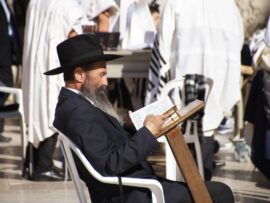A couple of weeks ago, for the first time in 95 years, the Boston Red Sox clinched the World Series on their home turf at Fenway Park. Members of the "Red Sox Nation" were ecstatic (including myself, a lifelong Yankee-hater), not only because of the championship triumph, but also because it came after a disappointing 2012 season in which the Red Sox finished dead last in their division. Perhaps the most unusual and outstanding feature of the 2013 Red Sox were the beards that many of them sported. It all began during spring training when just a couple of players showed up to training camp with a noticeable increase in facial hair, but over the course of the season the trend spread throughout the Red Sox clubhouse as a sign of team solidarity and unity, to the point that by season's end, well over 75% of the players had beards. It became a team ritual that whenever a player hit a home run, got a clutch hit, or made a great catch, he'd be greeted in the dugout with celebratory tugs at his beard, courtesy of his teammates.
This phenomenon prompted me to reflect on the Jewish perspective on beards, and the similarities and differences between "Jewish" and "Red Sox" beards.
The primary reason why beards are associated with Judaism, particularly with the religiously observant, is because of the Torah's prohibition (Leviticus 19:27), "You shall not destroy the edges of your beard," which precludes the typical morning routine of shaving with a razor. Technically, one could avoid violating this prohibition simply by shaving without the use of a razor, which can be accomplished with many, but not all, electric shavers. It's likely that a millennium ago, when this was not an option, men chose instead to simply let their beards grow rather than violate the prohibition and, like many Jewish customs and traditions, once this practice took hold it continued even into the modern era of electric shavers.
But there's more to it than that. As the Talmud states (Shabbos 152a): "The splendor of the countenance is the beard." This would seem to imply that aside from the aforementioned halachic considerations, there's something uniquely Jewish about a beard. Perhaps it's rooted in the fact that G-d refers to us as His "chosen people" (see Exodus 19:5, Deuteronomy 14:2), effectively assigning us the role and responsibility to act as His ambassadors to humanity. Perhaps, in keeping with that distinguished role, Jews have felt that it's proper to sport a beard, which has traditionally been viewed by both Jews and non-Jews as a mark of prominence, honor and nobility. This being the case, I think it's fair to say that there's a world of difference between a bearded, tattoo-covered athlete, and a Jew who sees his beard as a reminder of his higher calling in life.
While pondering the "Red Sox vs. Rabbis" question, my thoughts went back to an event I attended in the summer of 2012 at MetLife Stadium. It was the Siyum HaShas, an event held every 7-1/2 years to mark the completion of the study of the entire Babylonian Talmud, at a pace of one page per day. One could justifiably say that the Siyum Hashas is the Jewish version of Game 7 of the World Series. This celebration has grown astronomically over the past several study cycles, from an attendance of 300 in 1968 to over 90,000 at the most recent Siyum. Of those 90,000 members of the "Torah Nation" in attendance, I'd estimate that nearly 50% of the men had beards, ranging from the closely-trimmed to the waist-length variety. When the "final out" was recorded with the recitation of the last words of the Talmud, the entire stadium erupted in spontaneous singing and dancing, both on the field and in the aisles, albeit without any reports of beard tugging. Despite the fact that this was the single largest crowd ever to attend an event at MetLife Stadium, security guards were overheard remarking that they'd never encountered such a well-behaved and dignified crowd as they did that night.
This leads me to the conclusion that not all beards are created equal. The key is to distinguish between a beard that causes one to appear and act like a caveman, and one that signifies one's nobility of spirit and awakens the Divine spark within.

